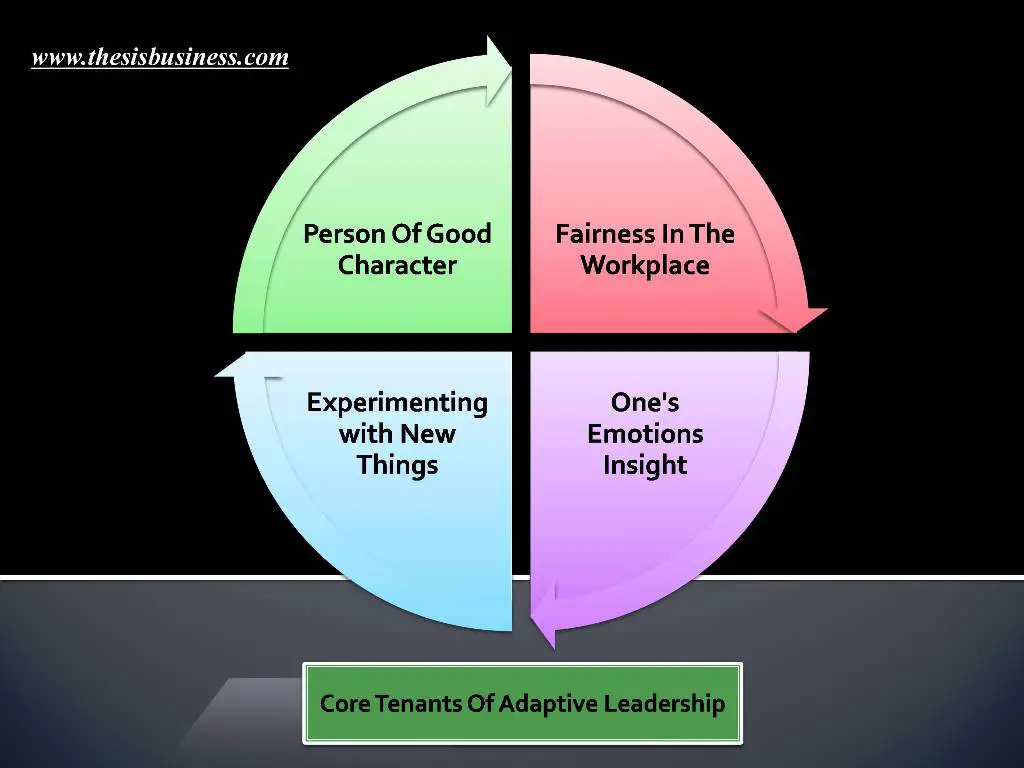Decision-making is a crucial part of every leader. This is where the adaptive leadership style is highly discussed. It stands out as leaders who remain receptive to criticism, adaptable to new situations, capable of handling complex tasks, and quick to alter course whenever necessary.
This article intends to describe adaptive leadership in detail. Hang on, we’ll discuss it in the simplest way.
Table of Contents
What Is Adaptive Leadership?
Harvard professors and authors Marty Linsky and Ronald Heifetz are widely credited as the creators of the adaptive leadership theory. They concluded that businesses constantly evolve and change, so all managers need to be flexible.
They proposed the theory when faced with a business problem, an adaptive leader takes a pragmatic approach by helping to zero in on what matters the most. Adaptive leaders eliminate anything else and solve the problem by opting for adaptive measures.
Adaptive leaders practice doing more than identifying problems and seeking solutions. They foresee the issues and also isolate those problems for quick solutions. More importantly, they are apt at determining which risks are worthwhile and which are better left unexplored by the company.
This equips them with the flexibility necessary to provide the most effective leadership for their organization. Following Linksy and Heifetz’s footsteps, the adaptive leadership framework was developed. The key to adaptive leaders’ success is an openness to change and a willingness to implement new strategies.
Core Tenants Of Adaptive Leadership
It’s vital to remember the adaptive method, like any other kind of leadership, has its guiding principles. Let’s find out.

1) Fairness In The Workplace
Adaptive leaders do not sugarcoat reality, no matter how unpleasant it may be for others. They believe in fairness in the workplace and show equality towards all. They share accurate information with staff and other interested parties. As the leaders show honesty, others associated with the leaders adapt to the changes faster.
2) One’s Emotions Insight
Their ability to empathize with others is another factor in the organization’s improved morale. Adaptive leaders understand that when employees feel valued and appreciated, they are more willing to put in extra effort for the business to grow.
It is hard to find any adaptive leaders without emotional intelligence. They apply their EQ to make adjustments in the decision-making process.
3) Experimenting with New Things
Adaptive leaders tend to be creative risk-takers who aren’t scared to try something new. They remain available to try new things even if they know the low probability of success.
Most importantly, they push and enable workers to realize their greatest potential. Leaders that are flexible and open to change are eager to experiment with new approaches (strategies, procedures, etc.).
4) Person Of Good Character
Character, openness, and originality are hallmarks of adaptive leadership. Leaders who adapt to changing circumstances gain their followers’ trust by putting their advice into practice. If something isn’t working, the adaptive leader has to be able to say so and confess they made a mistake. They are open to change as they are to diversity and will also find a way to use that diversity to the company’s advantage.
Advantage Of Adaptive Leadership
1) Outside Box Thinking Are Encouraged
How often do you hear people voice their displeasure when things change at work? But this is the standard procedure. Teams start looking for new, better ways to accomplish something rather than be constrained by tried-and-true techniques and technologies.
Teams may start thinking outside the box more quickly when they have an adaptable leader.
2) Ready To Accept Change
Adaptable leaders choose a new strategy opposite to the majority of leadership philosophies. They take the initiative when changes happen by anticipating the plan beforehand. This provides them a remarkable capacity to assess the topography of any project, be ready for evolving conditions, and put a strategy in place to address the problem.
3) Diversity Is Appreciated
Adaptive leaders want to listen to a variety of opinions. Certain leadership philosophies favor hearing just one voice when working on a project. He understands that people with diverse origins, ethnicities, and life experiences might provide distinctive viewpoints.
Leaders remain available for more ideas by knowing well that new leads lead to longer-term improvements. Adaptive leaders encourage this process since it improves everyone’s quality of life while increasing the outcomes that can be obtained.
4) Adaptive Leaders Are Emotionally Strong
Reading people’s emotions in every circumstance is the most incredible skill of an adaptable leader. Once a helping plan is developed for each employee are allowed to work as productively as possible daily. An adaptive leader can recognize even the non-verbal signs used in the job because of their emotional intelligence.
5) Easy To Adopt
Anyone capable of coming up with a creative solution to a problem may use the traits of adaptive leadership. To use adaptive leadership, you don’t have to be in a position of authority. A person who uses this leadership approach consistently can put the modifications they’ve made while looking at an issue into practice, which ultimately results in a solution.
Conclusion –
The benefits of adaptive leadership prioritize the employee. An adaptive leader concentrates on what individuals need to carve out to create their paths to success. They will understand that employees must be driven to accomplish their aim effectively.
However, employees that need external motives to persevere could find it challenging to succeed under the direction of an adaptive leader.
